Why drive-in movie theaters are the slice of nostalgia we need right now
There’s a mythology steeped in Americana that says the drive-in movie theater is a relic of the past. Could the drive-in be making a comeback? is a question that comes up every so often that is worth asking yet again in the wake of the coronavirus pandemic.
There are far fewer theaters than there were back in its heyday, but in today’s uncertain world where social distancing is the new norm and catching a flick in an indoor theater may pose some challenges, seeing a movie in the comfort of your own car with people you know, away from strangers, possesses not just a renewed charm, but perhaps a renewed sense of necessity.
“A lot of people are going to feel a little bit safer coming to the drive-ins than indoors,” Beth Wilson, who owns Warwick Drive-In in Warwick, New York, about 60 miles from New York City, told TODAY. “The indoors, the people I work with in this business, they are trying everything they can and doing whatever they can to protect their customers, also. I think, for this year, it might just be the thing of the new realm for this year for seeing movies.”
Carhops have returned, so maybe drive-ins can also take people to another era, with a call to the past lighting the way to the future.
![Moses [Misc.];Moses [Misc.];Charlton Heston [Misc.] (J. R. Eyerman / The LIFE Picture Collection/Getty Images)](https://s.yimg.com/ny/api/res/1.2/vWmRNbsNC572tzOxfQx1AQ--/YXBwaWQ9aGlnaGxhbmRlcjt3PTk2MDtoPTc2OA--/https://media.zenfs.com/en-US/nbc_today_217/0aa0d74afcf4ca68202c991ee7a11015)
“That’s the reason I love the drive-in, because it is a step back in time. You go into an indoor (theater) and it’s not the same as coming to a drive-in theater and you’re stepping back in time into the 1950s,” said Wilson, whose theater is closed due to the virus.
“In a normal season, to be able to be with your friends and family and sit there and just watch a movie under the stars is something remarkable. It’s very calming and pleasant.”
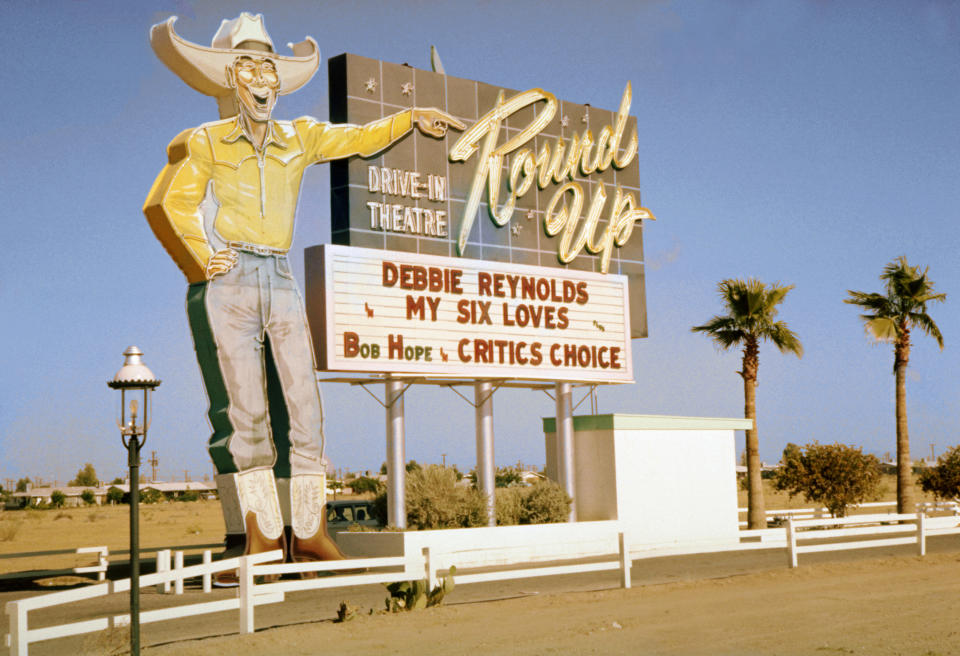
John Vincent, president of the United Drive-In Theater Owners Association, estimates 20 drive-ins around the country remain open right now out of 305 that exist, down from the 4,300 that he says operated at its peak in 1957.
While drive-ins conjure up bygone images of first dates or staring at the big screen while perched in the back seat, Vincent is quick to point out that nostalgia is only one part of their appeal to people of all ages.
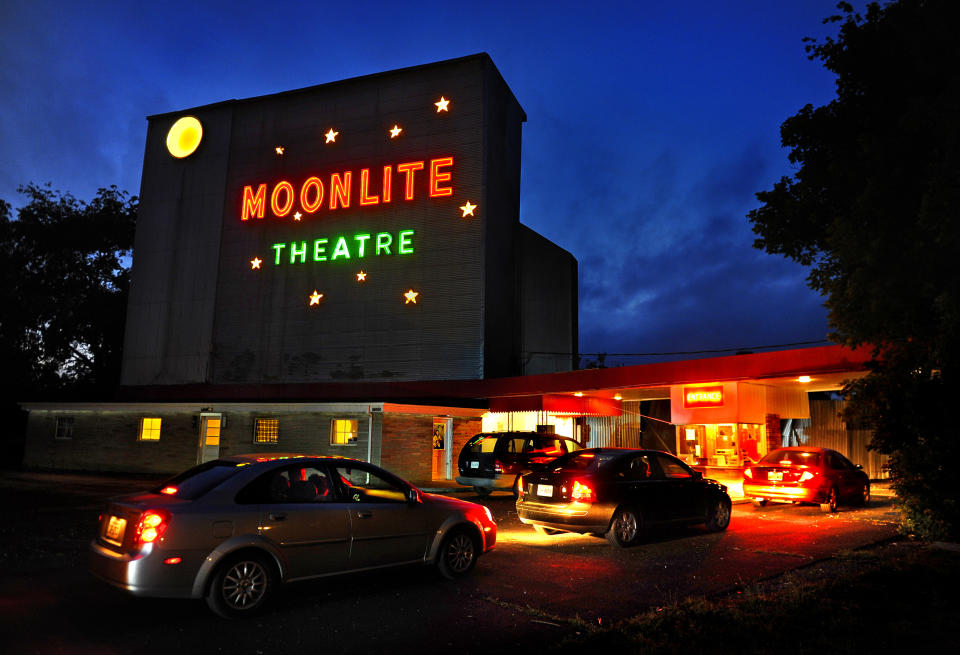
“You know, you have to have great movies for them to come and everyone from Generation Z to Millennials to Generation X to the Boomer generation, all seem to love drive-ins,” said Vincent, who is also president of the currently closed Wellfleet Drive-in and Cinemas in Wellfleet, Massachusetts, located about two hours east of Boston.
“Inherently, we think it’s a great idea. It’s not all about the nostalgia,” he added. “Nostalgia does have a part in it. I would say a piece of the puzzle and why people like drive-ins, but it’s not the sole reason.”
Taking in a movie has been a pastime for decades, whether it’s at a multiplex or a drive-in, and that may not change, even while we deal with an unprecedented health crisis.
“People are social beings and they’re going to want to go out of the house,” Paul Dergarabedian, senior media analyst for global media measurement company Comscore, told TODAY. “They’re going to want to go to the movies.”
“Drive-ins were always kinda cool,” he added.
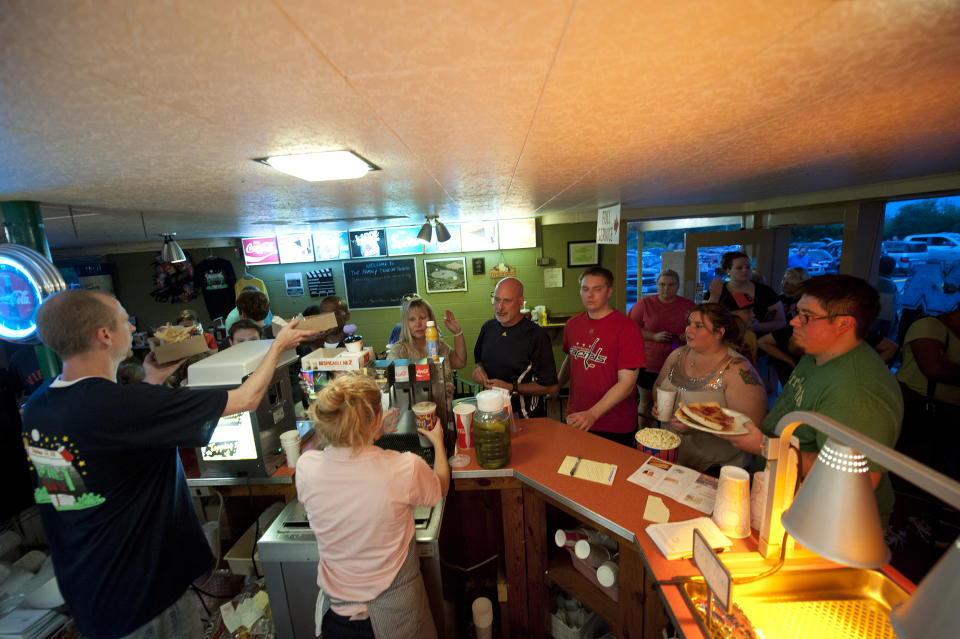
Whether cool or nostalgic, drive-ins may also offer a safe alternative for people looking for an evening of entertainment in this era of the coronavirus.
“I would love something like that to happen for this summer, considering I think the likelihood is that we’re going to be still having to practice this at least for several more months. I think that’d be amazing,” Dr. Marney White, clinical psychologist and associate professor of social and behavioral sciences at the Yale School of Public Health, told TODAY.
While they may make us think about a more innocent and carefree time that has passed, drive-ins have never really disappeared.
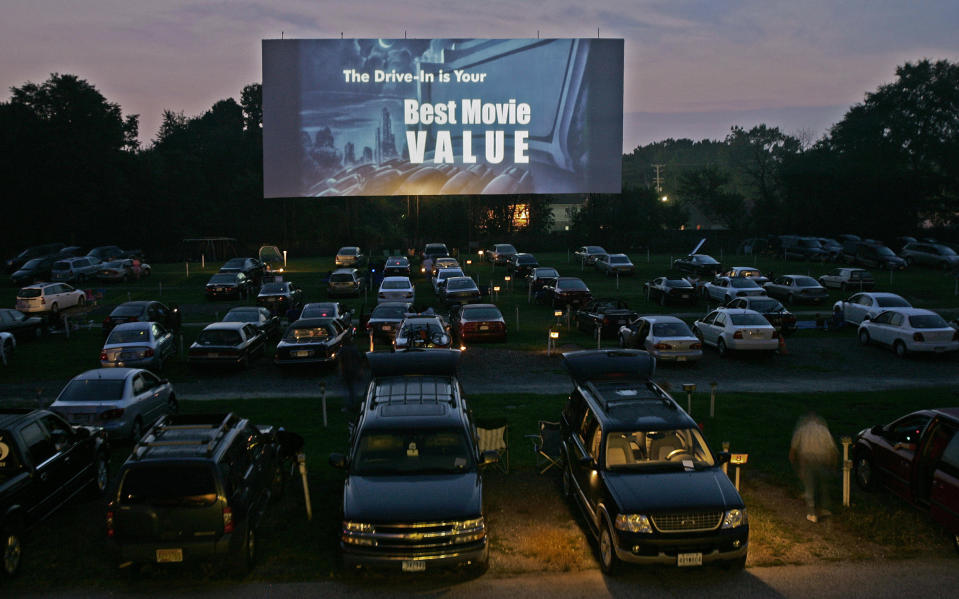
“We’ve had a renaissance,” Vincent said, noting studios began giving them new releases again in the early ‘90s. “’Jurassic Park’ was the first movie that really marked the renaissance of the drive-ins. It’s been consistent ever since.”
Wilson says she is prepping for a boost in business, bringing in more port-a-potties and setting up the snack bar to enable ordering from the car and pickup when ready to lessen contact and overcrowding. Vincent also says his group is working to get drive-ins to be one of the first businesses to open when restrictions are lifted while also discussing ways to properly deal with our new reality.
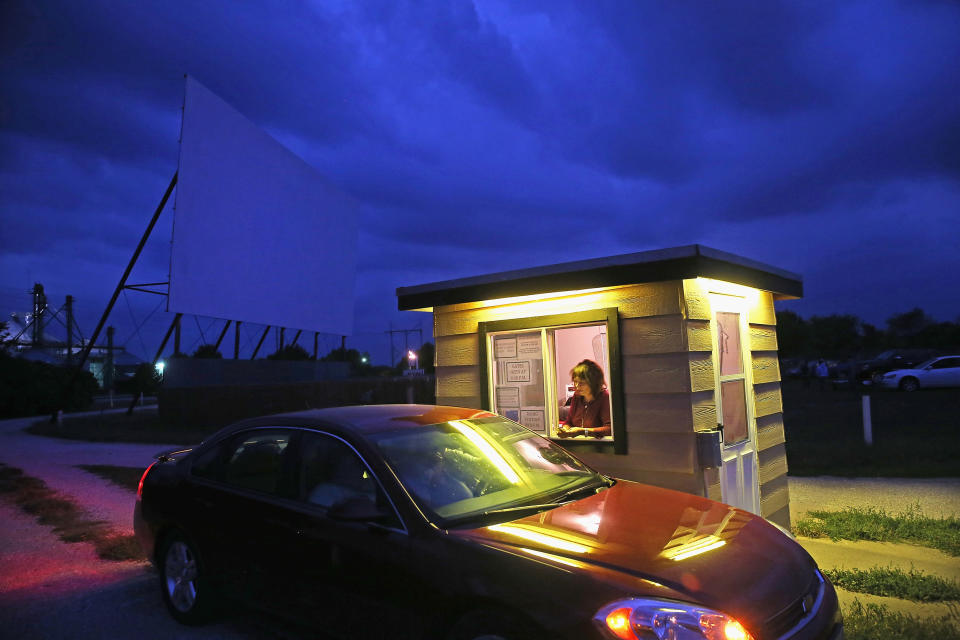
It may be a perfect storm of nostalgia and urgency that make drive-ins a viable entertainment option. If they do surge in popularity, will they remain a force in our culture?
“I’m not sure,” Wilson said. “Things come and go so fast. It’d be nice if they stayed and came to our theater and enjoyed us. It’d be great.”
